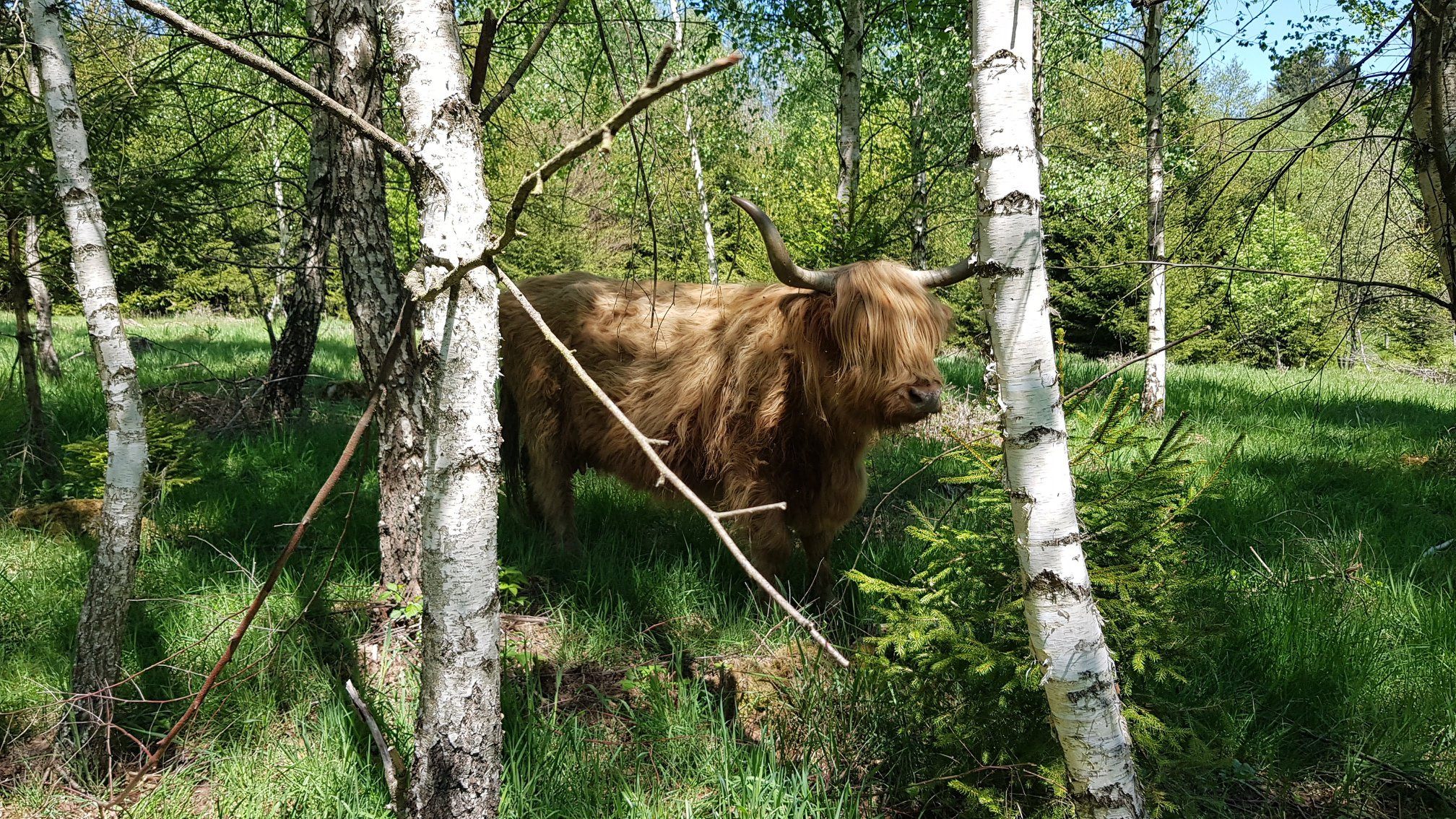Patrick Worms gives his testimony after a visit to Stéphane Delogne of Highland D'Ardenne, who runs highland cattle in a sylvopastoral system in Bertrix, in the Belgian Ardennes.
"As you can see, a synonym for "highland cattle in a sylvopastoral system " is "Paradise". Isn't it gorgeous? The sheer beauty of that farming system brought tears to my eyes!
Unlike the surrounding farmers who are doing intensive beef, he has no debts, his business is growing year-on-year, and he is now one of the only growers in the region with a full-time employee, despite only starting 10 years ago with 6000 euros in his pocket (they supplement their cattle operation with tree planting in winter).
He typically takes over abandoned tree-rich plots, overrun with nettles and blackberries, and leaves it to the highland cattle to bring all that back under control (they eat thorny stuff, to my surprise!). He's running a growing herd (aim: 120 animals) on 30 of these plots, as well as a flock of sheep. The animals are out all year, with veals born wild, as with upland sheep. No supplementary feeding, no input costs, no stabling costs, no feeding costs, very little machinery, so low diesel and capex costs too. And his land lease costs are low too - no other farmer wants to take over what they see as this mad mess of weeds, thorns and trees.
The result? He's feeding his family, building a larger farmstead with an educational component, and doing it all without debt.
His neighbours? They all run intensive systems on "clean" fields of one or two grass species that need a lot of inputs. They are squeezed in their prices by the high cost of winter feed, fertiliser, diesel and other inputs and the low prices supermarkets are willing to pay. They usually focus on a single metric: carcass weight (for Stéphane, carcass weight is way, way down his long, holistic list of variables to watch). Most are drowning in debt.
He sells direct to consumer at 18.50€/kg for all cuts, (i.e.) the average price of industrial beef in his local supermarket. He could of course charge far more, but he wants to make a point that it is possible to make a good living producing superlative beef without gouging the consumer.
The animals are born on the land, stay on the land all year including winter, receive no supplementary feeding, and only leave the land when it is time to meet their Maker.
His system is bound to be carbon negative, the biodiversity in his fields is so high that several are nature reserves now, and the nutritional status of his meat must be completely out of this world compared to even organic beef. For comparison, I marinated and cooked one of his rib eye steaks and a supermarket organic tournedos together. The latter was bland pink, dry, boring. The former was superlative: the meat, a deep burgundy red, melting on the tongue; the taste rich, deep and complex. The best beef i've ever had.
This kind of farming is what I get out of bed in the morning for. And bringing back 10 kg of frozen meat of this quality to feed the family is a nice cherry on the cake of my job."
Patrick Worms













